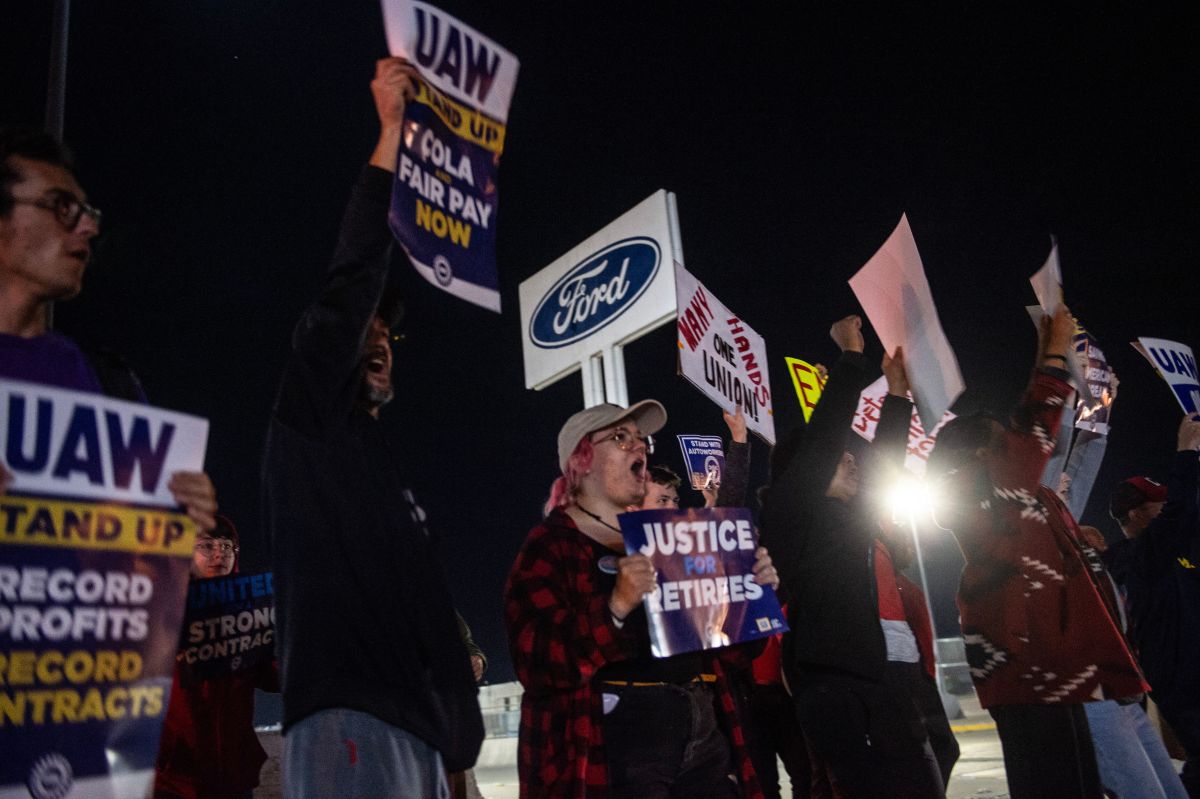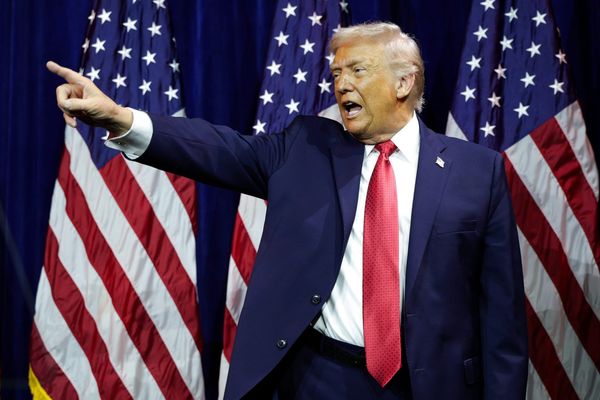
The United Auto Workers union on Sept. 15 began its historic series of rolling strikes against the Big Three — Ford, General Motors and Stellantis (STLA) -) — and 25,000 of the union's 150,000 members are now on strike.
Union President Shawn Fain recently expanded the strikes to affect assembly plants from Ford (F) -) in Chicago and GM in Lansing Delta Township.
"Our anger is righteous and our struggle is just. We are fed up with corporate greed and we are fed up with corporate excess," Fain said Sept. 29. "We are fed up with companies that take more and more and give less and less."
Related: Tesla Chief Elon Musk has a warning for Detroit 3 amid ongoing auto strikes
Beyond demanding 40% wage increases, the union is seeking cost-of-living adjustments, a 32-hour workweek, better retirement benefits, the elimination of employment tiers, and fairer profit-sharing programs. The automakers have come back with proposals offering 20% wage increases; few other details have been made public.
The automakers, meanwhile, remain concerned that acceding to the union's demands would cause far too much harm to their operations. Ford Chief Executive Jim Farley said Sept. 14 that if the union's current demands had been in place since 2019, Ford would have "gone bankrupt by now."
Mary Barra, the CEO of GM, (GM) -) earned $29 million in total compensation in 2022, 362 times the median salary for GM workers. Stellantis's CEO, Carlos Tavares, made $24.8 million and Farley made $21 million, both hundreds of times above their average worker's pay.
Tesla (TSLA) -), meanwhile, has been pegged as the true champion of the strikes, with analysts convinced that regardless of how long the strikes continue, they will enable Tesla to win the electric-vehicle price war and simultaneously derail the Big Three's plans to compete with Tesla.
The only way Tesla could lose is if its nonunion workers unionize, something CEO Elon Musk opposes. But Wedbush analyst Dan Ives doesn't think that's a likely possibility.

Analyst Ives: 'A fear of unions at Tesla'
"There's always been a fear of unions at Tesla. I just see that as a minimal probability that's going to ever happen," Ives told CNBC. "Tesla, it's a win-win situation. It's a debacle in Detroit. Ultimately, this is going to be passed to the consumer when they do get a deal. The UAW deal, if they took that, it would impair the business models for the next decade."
Related: Top analysts explain the real winner of historic UAW strikes (it's not the workers)
When the competition involves nonunion and foreign automakers, Ives said, a record deal with the UAW would make success in EVs for these three legacy auto giants an uphill battle.
"That's why this UAW, it's a nightmare on Elm Street in terms of what's happening in Detroit," Ives said.
And even in the wake of production and delivery numbers that came in below Wall Street expectations, Ives's bullish Tesla outlook hasn't shifted. With the Cybertruck on its way, in addition to the refresh of popular Tesla models, Ives thinks Tesla's dominance will continue to grow.
"This is more of a pause into the next phase of the Tesla growth story," he said. "This is not an auto company. This is a disruptive tech company; that's why we're buying here."
Action Alerts PLUS offers expert portfolio guidance to help you make informed investing decisions. Sign up now.







